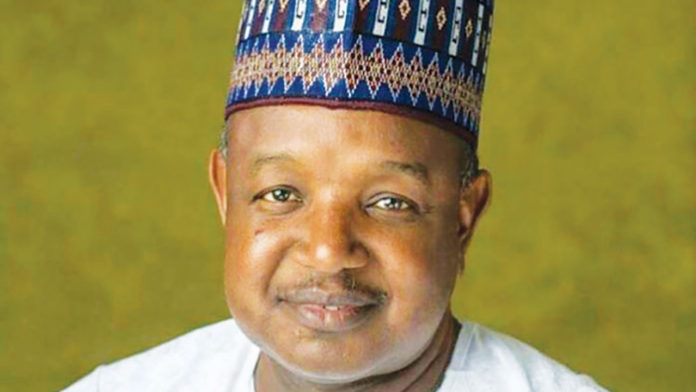Gov. Atiku Bagudu of Kebbi State has advocated for a permanent framework to limit the movement of cattle from the Sahel to other regions in Africa.
Bagudu was speaking on Saturday while declaring closed the 2021 Pastoralists Week held in Birnin Kebbi, the state capital.
The News Agency of Nigeria (NAN) reports that the meeting was jointly organised by Dosso state in Niger republic, Alibori state in Benin republic and Kebbi State, Nigeria, alongside ECOWAS and National Boundary authorities of the three countries.
The governor noted that any framework designed by the meeting would be accepted by the Nigerian government, as long as it was in the interest of unity and progress of West African countries.
Bagudu, who is also the Vice-Chairman of Nigeria’s Food Security Council (NFSC) said: “Animal Husbandry is an important work in West Africa, and I am happy that we all appreciate the importance of this sector and I am glad that the CILSS is leading efforts to generate resources that will help us to develop the sector.
“There was a statement that about $300 million dollars funding has currently been mobilised by the CILSS and that is most important. What this funding can do, is to help us draw the attention of the world to the potentials in animal husbandry in West Africa.
“This is because, it requires more than that to develop and we must have a way of communicating it to the ECOWAS leadership, perhaps the African Union (AU) leadership, that we need them to be unanimous in this area so that we can generate billions of dollars that can support the pastoral sector in West Africa”, Bagudu said.
He noted that the pastoralism sector was full of hardworking people, looking for opportunity to cater for their children and give them good education, as such any investment in the sector would yield the desired results, including better returns on investment.
“I believe that Nigeria, particularly President Muhammadu Buhari, will support us on this programme as quickly as possible, so that we can demonstrate how it will work.
“Even before then, the current protocol of West Africa, and the framework of operations, allows us to collaborate more and I propose that we send the recommendation to the appropriate authorities.
“So that Dosso, Alibori, Nigeria and Kebbi state, supported by ECOWAS and CILSS can create this framework, while we are waiting for our national leaders to endorse it and send it to other countries, so that they can come and learn from us,” he noted.
The immediate past Governor of Kebbi State, Alhaji Sa’idu Nasamu-Dakingari urged Nigerian politicians and those of Niger and Benin republics to take the issue of pastoralists very seriously as it was not about land, “but the rain and climate change”.
Nasamu-Dakingari explained that the expansion of land for farming had continued to pose serious challenges to pastoralists, who were always migrating during dry seasons from the Sahel to Southern regions, for pasture.
Earlier, Mr Sekou Sangare, the ECOWAS Commissioner for Agriculture and Rural Development, the Gov.of Dosso in Niger Republic, Alhaji Assoumana Ahmadou and the Gov. of Alibori in Benin Republic, Ky-Samah Bello appreciated the warm hospitality they had received from the government and people of Kebbi State.
They congratulated the Kebbi state governor, Abubakar Atiku-Bagudu and the entire people of Nigeria on the country’s 61st independence anniversary, while calling for closer ties to deal with issues challenging pastoralism, insecurity, trans humance and cross-border cooperation.
On his part, Dr. Adeniyi Adedoyin, a Deputy Director, Federal Ministry of Agriculture and Rural Development, suggested the need for a framework to track performance and identification of animals, stressing that to practice ranching, Kebbi State could even start its own framework to test its workability.
Also, the Director-General of National Boundary Commission, Dr Adamu Adaji, represented by Hajiya Hauwa Abdul-Ismail, commended the organisers of the meeting assuring that it had given the commission an opportunity to witness projects implemented by the Kebbi state government.













